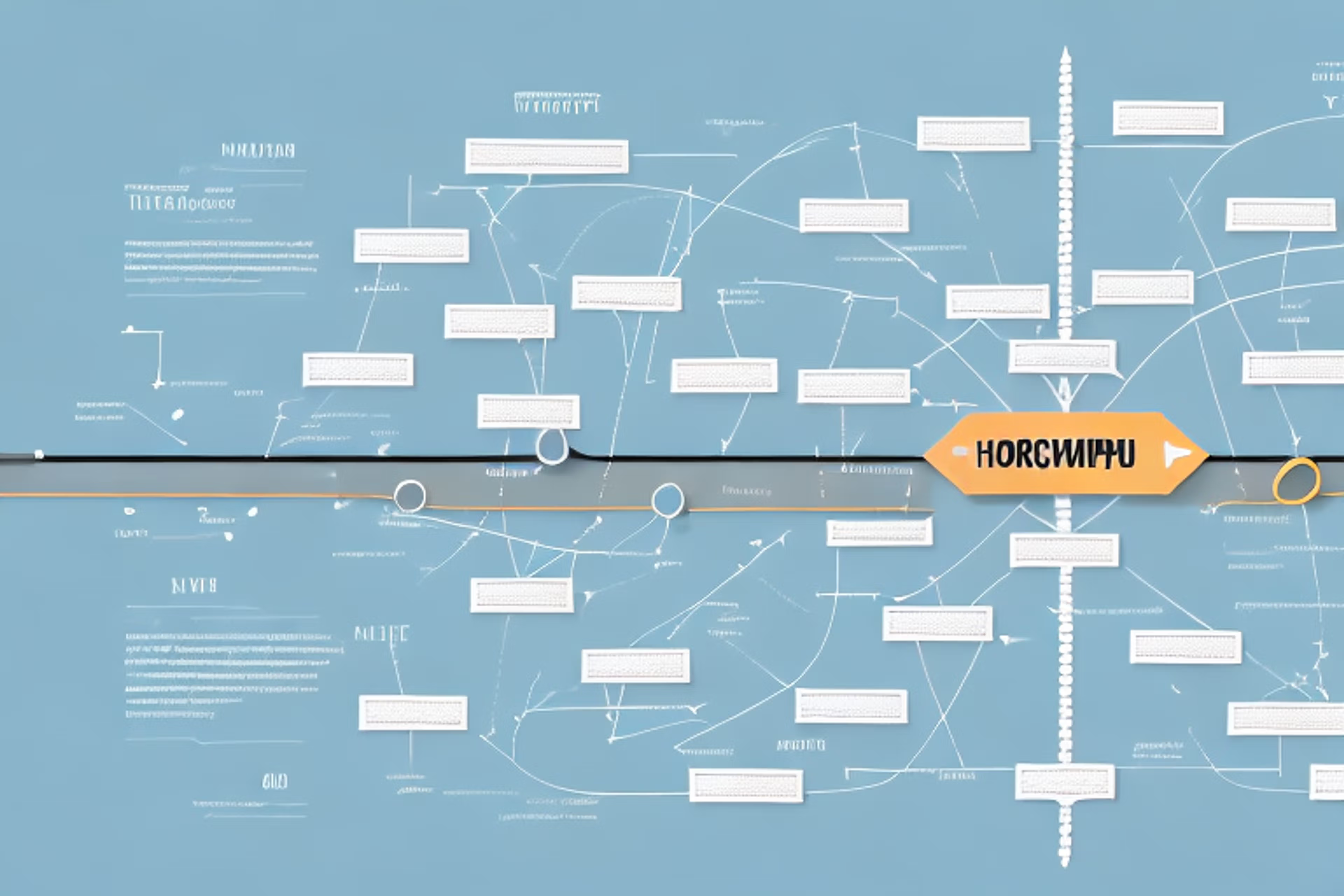From Retail to Consulting: A Step-by-Step Guide on How to Transition Into Management Consulting
Are you looking to transition from retail to management consulting? Look no further! Our step-by-step guide provides valuable insights and actionable tips to help you make a successful career change.
Posted March 6, 2025

Table of Contents
In a world where career paths are constantly evolving, it's now more common for professionals to switch industries. If you're considering a transition from retail to management consulting, you're up for a challenge but also great rewards. The rewards include high pay, challenging projects, and the opportunity to work with talented colleagues. However, making the transition might seem daunting, especially given the management consulting industry's competitive nature. But it's doable. This article will provide you with a comprehensive guide on how to transition from retail to management consulting successfully.
Introduction: Why Transition from Retail to Consulting?
For individuals who wish to take on a new challenge and bring their skill set to a different industry, management consulting is a great way to pivot. With consulting, you'll have the opportunity to work with various clients, industries, and problems. Unlike in retail, where the focus is on selling, consulting is about providing insights and helping clients find solutions to their business problems. Consultancy provides exposure to multiple business problems which gives a consultant a broad perspective that can help in career growth. Beyond this, consultants often get paid more than their retail colleagues and often get to work with talented professionals.
Moreover, consulting offers a dynamic work environment that is constantly changing and evolving. As a consultant, you will be challenged to think critically and creatively to solve complex business problems. This can be a refreshing change from the routine tasks of retail work. Additionally, consulting firms often provide extensive training and development programs to help their employees grow and advance in their careers. This investment in professional development can lead to exciting opportunities for advancement and career progression.
Assessing Your Skills and Experience for the Transition
Before starting any career transition, you need to examine your skills. In retail, you might have developed skills such as customer service, sales, or brand management. On the other hand, consulting is about providing solutions to business problems. Thus, your core skills should include problem-solving, data analysis, and project management. Gaps in skills can be filled through training or experience. With experience in retail, you might have solved various real-time business problems which are vital in consulting. Also, good interpersonal skills are essential in consulting as you’ll be dealing with clients with different personalities.
It is also important to consider your experience when making a career transition. While your skills may be transferable, your experience may not be directly relevant to the new field. However, you can still leverage your experience by highlighting transferable skills and accomplishments. For example, if you managed a team in retail, you can showcase your leadership skills and ability to manage projects and deadlines. Additionally, networking and informational interviews can help you gain insight into the new field and make connections with professionals who can offer guidance and support.
Understanding the Management Consulting Industry
Management consulting is a broad field that varies depending on the firm size, expertise, and the clients they serve. Management consultants can be categorized into two: strategy and operations. A strategy consultant focuses on advising clients on how to improve their business, develop growth strategies, and provide insights into new opportunities. Operations consultants, on the other hand, handle clients' day-to-day operations, such as process improvement, organizational changes, and supply chain management. Consulting firms can also specialize in a specific industry such as technology, healthcare, financial services, or retail.
Management consulting is a highly competitive industry, with many firms vying for clients and market share. To stand out, consulting firms often differentiate themselves by their approach, methodology, and expertise. Some firms may focus on a specific area of expertise, such as digital transformation or sustainability, while others may have a unique methodology or framework for problem-solving. Additionally, consulting firms may offer a range of services beyond traditional consulting, such as technology implementation, data analytics, or training and development programs.
Identifying Your Target Consulting Firms
Identifying your preferred consulting firms is an important step for a successful job transition. You should research your preferred firms to understand their expertise, company culture, and job opportunities. Consider factors such as firm size, consulting focus, and your preferred location when selecting a consulting firm. You can also attend consultancy recruitment fairs to interact with the consulting firms’ representatives and learn more about their operations.
Another important factor to consider when identifying your target consulting firms is their reputation in the industry. Look for firms that have a strong track record of delivering high-quality consulting services and have a good reputation among their clients. You can also check industry rankings and awards to get an idea of the top consulting firms in your preferred field. Additionally, consider reaching out to your professional network or alumni associations to get recommendations and insights on consulting firms that align with your career goals.
Building a Strong Consulting Resume
After identifying the consulting firms you would like to work for, you need to develop a consulting resume that markets your skills and experience. Strengthen your resume by showcasing relevant skills and experience related to consulting. List your educational qualifications, professional certificates, and awards. Ensure that the resume is well-organized and easy to read.
One important aspect to consider when building a consulting resume is to tailor it to the specific consulting firm you are applying to. Research the company and its values, and highlight how your skills and experience align with their needs. This will show that you have done your homework and are genuinely interested in working for that particular firm.
Another tip is to include any relevant volunteer work or extracurricular activities that demonstrate your leadership, teamwork, and problem-solving skills. Consulting firms value candidates who have a well-rounded background and can bring diverse perspectives to the table.
Preparing for Consulting Case Interviews
Case interviewers are an integral part of the recruitment process in management consulting firms. Case interviews test an applicant's problem-solving abilities and analytical thinking. They often involve a hypothetical business scenario, and applicants are required to provide solutions to the given problem. To prepare for a case interview, you need to develop your problem-solving skills and read case studies. You can also attend case interview preparation workshops run by consulting firms or online courses.
It is also important to practice with mock case interviews. You can find case interview partners through networking events or online forums. Practicing with others will help you refine your approach and identify areas for improvement. Additionally, it is important to stay up-to-date with current events and industry trends, as case interviews may involve real-world scenarios. By preparing thoroughly and practicing regularly, you can increase your chances of success in consulting case interviews.
Leveraging Your Retail Experience in Consulting
Your experience in retail can help you land a job in consulting. You might have demonstrated strong customer service skills, worked in a fast-paced environment, and problem-solved to meet colleagues' and customers' needs. You can showcase these relevant skills during the recruitment process. Also, the client-facing position in retail equips you with the required skills to communicate effectively with clients in consulting.
Furthermore, your experience in retail can also provide you with a unique perspective on consumer behavior and market trends. This knowledge can be valuable in consulting, where understanding consumer behavior and market trends is crucial in developing effective strategies for clients.
In addition, working in retail often involves managing inventory, analyzing sales data, and making decisions based on financial metrics. These skills can be transferable to consulting, where you may be required to analyze data, develop financial models, and make recommendations based on financial analysis.
Networking with Consultants and Industry Professionals
Networking with consultants and industry professionals is an essential part of transitioning to consulting. Attend recruitment fairs, join professional networks such as LinkedIn, and attend industry conferences and events. Through networking, you will learn about the recruitment process and the different job opportunities in management consulting. You can also leverage your network for mentorship and potential job referrals.
Another way to network with consultants and industry professionals is to participate in online forums and discussion groups. These platforms provide an opportunity to engage with professionals in your field, ask questions, and share your own insights and experiences. By actively participating in these forums, you can establish yourself as a thought leader and build relationships with other professionals.
It's also important to remember that networking is a two-way street. While it's important to seek out opportunities to connect with others, it's equally important to offer value to your network. Consider sharing relevant articles or resources, offering to connect others in your network, or volunteering your time and expertise to help others achieve their goals. By being a valuable member of your network, you'll be more likely to receive support and opportunities in return.
Landing Your First Consulting Role: Tips and Strategies
Landing your first consulting role can be exciting and challenging. However, there are a few strategies and tips you can consider when applying and interviewing for roles. First, tailor your cover letter and resume to every job you apply for, showcasing your skills that align with the firm's business needs. Also, prepare for case interviews thoroughly, and connect with alumni at consulting firms for advice and guidance.
Another important strategy to consider is networking. Attend industry events and conferences, and connect with professionals in the consulting field. Building relationships with people in the industry can help you learn about job openings and gain valuable insights into the consulting world.
It's also essential to research the consulting firms you're interested in and understand their culture and values. This knowledge can help you tailor your application and interview responses to align with the firm's mission and goals. Additionally, practicing your communication and presentation skills can help you stand out during the interview process.
Thriving in Your New Role as a Management Consultant
Initially, it can be challenging to transition to management consulting, but with determination and hard work, you will adapt to the new work culture. Ensure that you learn from your mentors, colleagues, and clients, and stay updated on industry trends and developments. Also, communicate regularly with your manager and seek feedback on your work performance. Networking within the organization can give you insights on opportunities to improve your career growth.
Another important aspect of thriving in your new role as a management consultant is to maintain a work-life balance. Consulting can be demanding, and it is essential to take breaks and prioritize your well-being. Engage in activities that help you relax and recharge, such as exercise, hobbies, or spending time with loved ones. Remember that a healthy work-life balance can improve your productivity and overall job satisfaction.
Conclusion: Making the Jump from Retail to Consulting Successfully
The transition from retail to consulting requires determination and resilience. However, it's doable. Conduct thorough research on the industry, your skills and qualities as an applicant, and target consulting firms that align with your goals. With the right preparation and mindset, the transition can lead to a fulfilling and rewarding consulting career. Good luck in your transition!



















